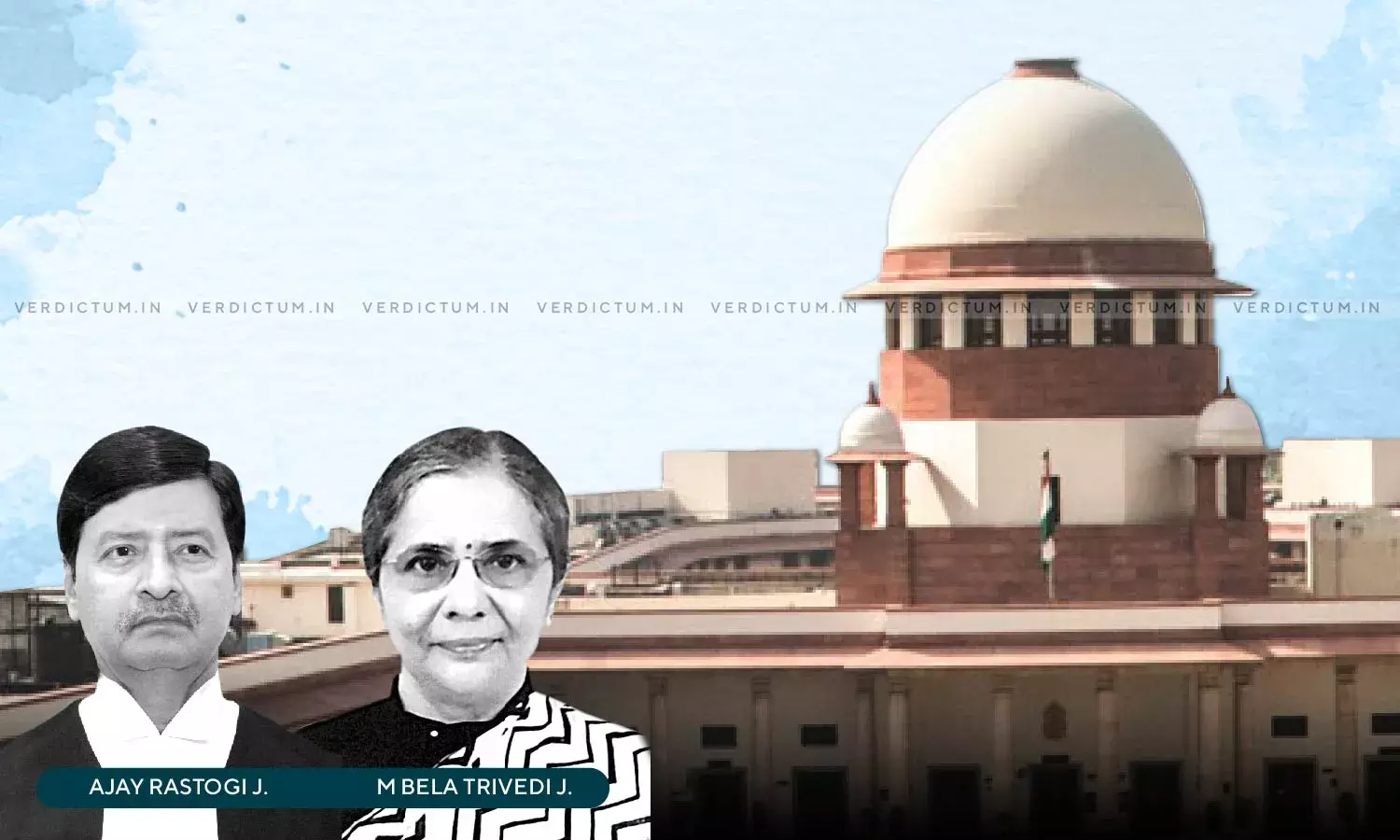SARFAESI Act: If Someone Is Called To Participate In Bidding Process, Facts Must Be Made Clear To Parties- SC

The Supreme Court has said that in case of a public auction under the provisions of the SARFAESI (Securitisation and Reconstruction of Financial Assets and Enforcement of Security Interest) Act, 2002, if someone has been called upon to participate in the bidding process, the facts must be made clear to the parties since there is always a high variance between market realizable value and the distress value of the mortgaged property.
The Bench of Justice Ajay Rastogi and Justice Bela M. Trivedi asserted, “The appellant has come with the bona fide defence that he was never informed on the date when the auction was held or day thereafter that the substantive proceedings are pending before the DRT instituted at the instance of the borrower. As a man of ordinary prudence, if someone has been called upon to participate in the bidding process, the facts must be made clear to the parties for the reason that there is always a high variance between market realizable value and the distress value of the mortgaged property when put to public auction under the provisions of the Act, 2002.”
The Bench observed that ordinarily if the highest bidder fails to deposit the balance amount of the purchase price within the stipulated period and commits a default, its consequence is stipulated under Rule 9(5) of the Rules, 2002 but the instant case was not a case of simple default.
Advocate Dhaval Mehrotra appeared for the appellants while Advocates Rajesh Kumar Gautam and Awanish Sinha appeared for the respondents.
In this case, an appeal was preferred against the judgment passed by the Uttarakhand High Court, whereby while reversing the finding returned by the Single Judge it upheld the re-auction proceedings initiated by the Punjab National Bank and granted liberty to the appellant to initiate independent proceedings before the competent forum for recovery of the amount which stood forfeited by the said bank.
The Supreme Court in the above context noted, “… even when the correspondence was made by the first respondent, the only request made by the appellant throughout was that he had no difficulty to pay the balance amount provided the matter is finally decided by DRT. Obviously, as a man of ordinary prudence, one is always supposed to assess the value of the property on which the auction was held by the secured creditor(first respondent).”
The Court said that there appears no justification in the facts and circumstances particularly when the factual matrix is not in dispute and the money deposited by the appellant towards earnest money and the first installment of 25% in terms of the auction notice is the accepted fact by either party.
“We are of the considered view that once there is no dispute on the facts came on record, there appears no reason for the appellant to be relegated to avail other remedial mechanisms for recovery of the indisputed amount and the Division Bench has committed a manifest error in the facts and circumstances in not exercising its power under Article 226 of the Constitution and instead of resolving the dispute, the Division Bench under the impugned judgment has kept the issue alive, permitting the parties to have a second innings in reference to the dispute which stands crystalized/settled”, observed the Court.
The Court further clarified that since the appellant filed an appeal after a long delay, he is not entitled to any interest on the amount forfeited by the bank. The Court, therefore, directed the bank to return the money to the appellant deposited in reference to the auction notice within two months.
Accordingly, the Apex Court allowed the appeal.
Cause Title- Mohd. Shariq v. Punjab National Bank and Others


